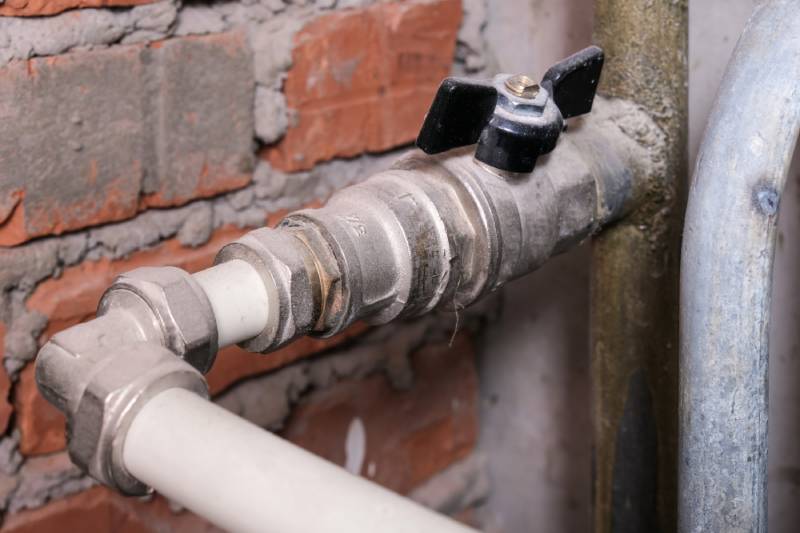It’s recommended to turn off your water supply if you’re leaving home for an extended period or during emergency plumbing situations. This is important to prevent plumbing damage and flooding that could lead to costly repairs. The reality is, not many homeowners know what goes into preparing a home for a water shut-off.

In this guide, Mr. Rooter Plumbing provides you with a checklist for preparing your home for a water shut-off. Our team is on standby to respond to your emergency plumbing needs, including frozen pipe repair, burst pipe repair, and more.
Knowing where your main water shut-off valve is located is the first step to protecting your home during emergencies. Typically, it’s found in the basement, garage, or near the foundation. Test the valve to ensure it operates smoothly, and label it clearly so it’s easy to identify in urgent situations.
Before shutting off the water, take time to prepare your appliances. Turn off water supply lines to dishwashers, washing machines, and refrigerators with ice makers to prevent leaks. For added protection, unplug these appliances and drain any remaining water from hoses or filters.
After shutting off the main water supply, drain the pipes by turning on faucets and running water until it stops flowing. This process prevents trapped water from freezing, expanding, or causing pressure-related damage, especially during cold weather. Be sure to drain both hot and cold water lines. For homes with outdoor plumbing, don’t forget to drain irrigation systems and garden hoses as well.
Once the water is shut off, flush your toilets to clear the tanks and bowls. This step prevents stagnant water from sitting in the system, reducing the risk of unpleasant odors, bacteria growth, or residue buildup. After flushing, pour a bucket of water into the bowl if necessary to clear any remaining waste.
Protect pipes in unheated or exposed areas, such as basements, garages, and crawl spaces, by adding insulation. Foam pipe covers or heat tape help prevent freezing and bursting during cold weather when water is turned off. Insulating your pipes not only preserves their condition but also reduces repair costs and water damage risks. This proactive measure is especially important for homes in colder climates or during winter months.
Outdoor faucets and spigots are often overlooked but are vulnerable to freezing and damage when water is shut off. Disconnect garden hoses, drain any remaining water, and close the supply valves to outdoor faucets. Cover them with insulated covers if temperatures are expected to drop.
After completing all preparations, take a final walkthrough to check for leaks or dripping faucets. Even small leaks can lead to larger issues over time, especially if the plumbing is under pressure. Address any visible issues and keep an eye out for damp spots, mold, or unusual odors. Regular monitoring ensures your home stays safe and helps you catch problems early before they escalate. Call a trusted plumbing repair service if you notice signs of water leaks.
Do you have a plumbing emergency? Contact the licensed plumbers in Anna Maria, FL at Mr. Rooter Plumbing for quick help. Whether it be a burst pipe, a blocked toilet, or a broken water heater, we are ready to provide you with professional plumbing repair services.
Let's be frank: Everything costs more than it did two years ago. Your grocery bill is higher, gas prices bounce around like a yo-yo, and if your water heater just…
If you live in Florida, then you know how fast a sunny afternoon can turn into a heavy downpour. In a low-lying state where the water table sits high and…
Your plumber just delivered the news: your home needs repiping. Those galvanized steel pipes that have served faithfully for 60 years are finally giving up. Or…
If you notice water pooling on your floor, you may feel frustrated… but you’re also fortunate. Visible leaks announce themselves early. Hidden leaks do not. In fact, many of the…